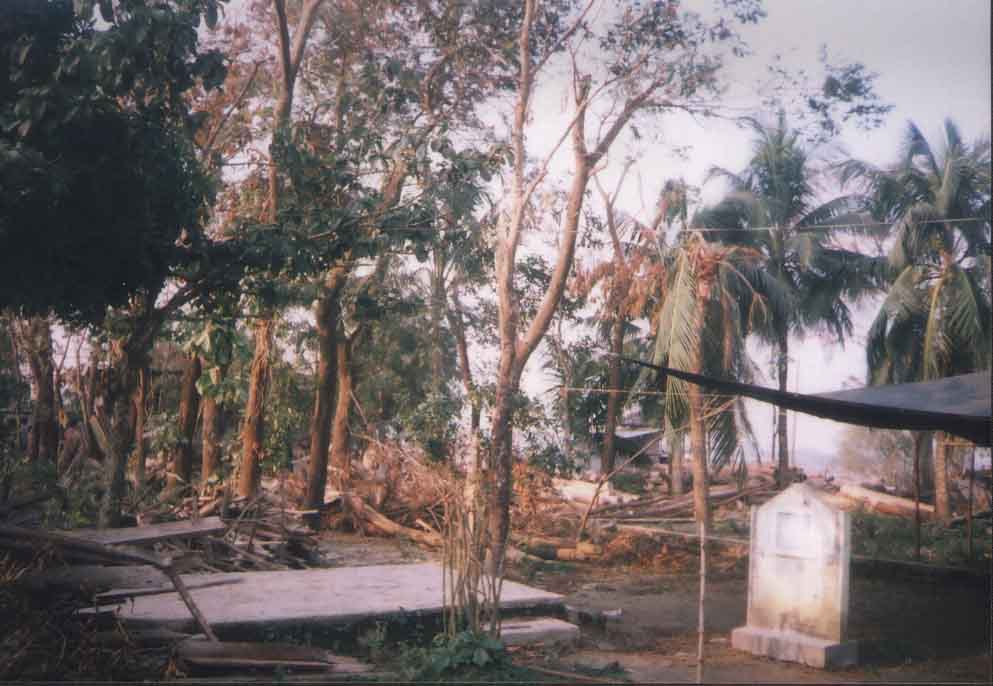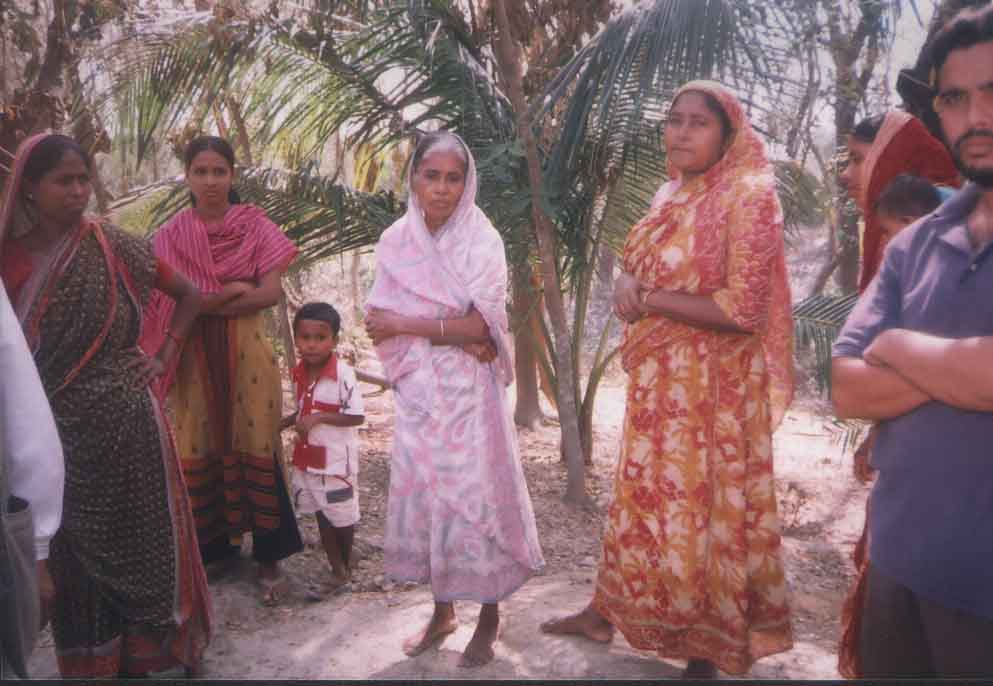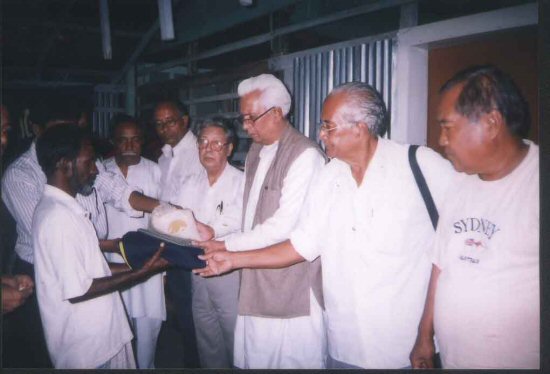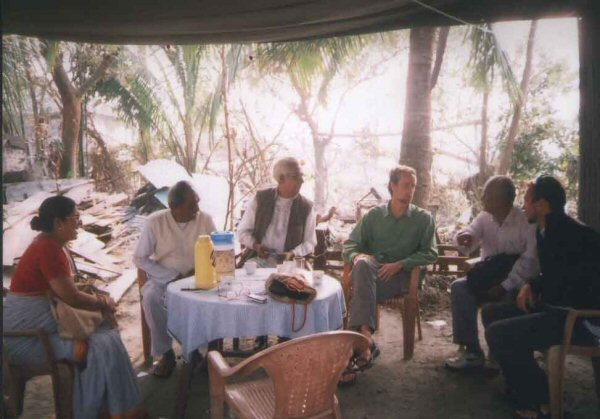
|
|
|
|
|
|
|
|
|
|
|
|
|
|
|||
|
|
|||||
|
|
|
Horrifying Experience: A visit to coastal areas in Khepupara-Kolapara Upazila Published on May 03, 2009
I had been to southern part of, mainly the coastal areas recently in Kolapara-Khepupara Upazila of district of Patuakhali, one of the most devastated districts. The coastal belt we visited stretched from Kuakata in the west to east along the sea cost for a few miles. We saw the devastated jnapads (roads) and janas (people). The condition of the people is simply beyond description; honestly speaking my vocabularies failed me to describe what I saw in my own eyes destruction and damage, the cyclone, termed as SIDR (meaning the EYE in Ceylonese language) had caused. We moved along the coast and land along the WAPDA built barrage in early sixties. Most of the houses of the common men on both sides of the barrage were collapsed or blown away by the accompanying tornado wind blowing not less than 300 km per hour, trees, small or big were uprooted, the tidal bore rose to 10 feet height over flowing the barrage causing damage of the barrage severely (in many places it came down to ground level This sweeping bore entered village after village causing damage of the paddy fields and causing the fields and ponds saline with sea waters. I spent there 3 days from 30th Nov � 3rd December making our relief head quarter at Khepupara in a house of my very good friend Mr. Ushewe, a noble Rakhain leader and a well to do family, who commands respect not only from his own community but Bengalis too. When I entered his house with our relief team I saw him living under almost an open sky. The Ushewe family has lost every thing. His palatial and beautiful residence, a two-storied timber made house overlooking a small river was submerged under tidal boar 5-6 feet deep. This tidal bore with accompanying severely blowing wind caused damage to his house and its premise surrounded with tall trees and natural bushes. The family lost all their material belongings. He told us that just a day before, the family moved back to a temporarily erected shelter in the premise. Until that day the family took shelter in a hotel in Kolapara town. The town itself was unimaginably damaged mainly to poor people and small business community. The government gave Ushewe family two pieces of tarpaulin with which he made a relief centre cum his office wherein we were cordially invited on the afternoon 30th November, 2007 with a broad smiling face and unfolded arms. His well rich library in Rakhain literature and ancient Burmese manuscripts is totally damaged beyond recover. Next day we moved with sea trolley and boats along the coasts and canals or some times with automobiles whenever possible on roads. During three days we covered perhaps nearly thousand families. It was a shocking experience for me. The extent of damage is simply unimaginable. The poor people have lost everything, yes everything apart from loss of human lives. Every family, every man has a horrifying story to tell. My very good friend made all the arrangements for our visits to remote villages inhabited with Rakhain people. We concentrated our relief work in the unions and villages where Rakhains are living distributing relief materials to more than 1000 families along the costal belt. Out of these 1000 families 300-350 families belong to Rakhains and Christians (not more than 50) and rest are Muslim and a few Hindu families (a fishing community). The fishing communities, whether Hindus or Muslims were the worst sufferers. Mohimganj, a small river port famous for production and export of dried fish of various kinds was washed away. This resulted the business community, the fishermen and the laborers put on starvation. As I narrated before most of the families living on both sides along WAPDA built barrage in early sixties lost their houses, cattle, fishes, and paddies. The ponds and paddy fields became saline. As a result they cannot cultivate the next crop, a kind of dal. How long and how many rainy seasons would these lands require for desalination is any body�s guess. Most crises are the scarcity of drinking water as most of the ponds have become unusable. There had never been any tube well system in the localities (shallow or deep). The people of those localities have asked us for a few tube wells on emergency basis. Many school structures and furniture are either damaged or washed away. I visited two schools one a non-government primary school, located in a Christian village and another a secondary school in a Muslim village near Kuakata. Apart from material damage of the schools, boys and girls have lost books and other education materials. I felt so helpless among them and so small.
We distributed materials for each family a packet containing a piece Sari/Lungi, a woolen chaddar, a few Kg rice, Chira with gur, some medicine for diarrhea & fever, water purifying tablets and a few hundred cash money. We left behind some more materials for another 500 families with the local relief team headed by Mr. Ushewe.
Our team consisted of Mr. Pankaj Bhatacharyya, Ahmed Saleh, Ms Razia Samad, Mrs. Jayanti Ray and 22 young men, who carried the most of the burden of distributing relief materials. Locally were joined by Comrade Aziz, a leading lawyer of Patukhali, Advocate. Matin and some socio-cultural leaders. . In the morning of December 4, we bid fare well from Ushewe family who entertained us with paratha & vegetable curry plus a warm cup of tea. Before I took leave of Mrs. Usewe and her charming daughter in law I slipped in to her unwilling hand a few thousand taka as a token of our good will and ours sharing their grief in this critical time. We left for Dhaka at 6-30 am.
On our way back at Patuakhali town we were invited to local press club for exchange of views and shred with them our horrifying experience. Prof. Ajoy K. Roy--a reputed scientist and human
rights activist from Bangladesh--is the member of Mukto-Mona advisory board.
He writes from Dhaka. Related Article:
|
|
|
|
|
|
|
|
|||
|
|
|||||
|
|
|
|
|




